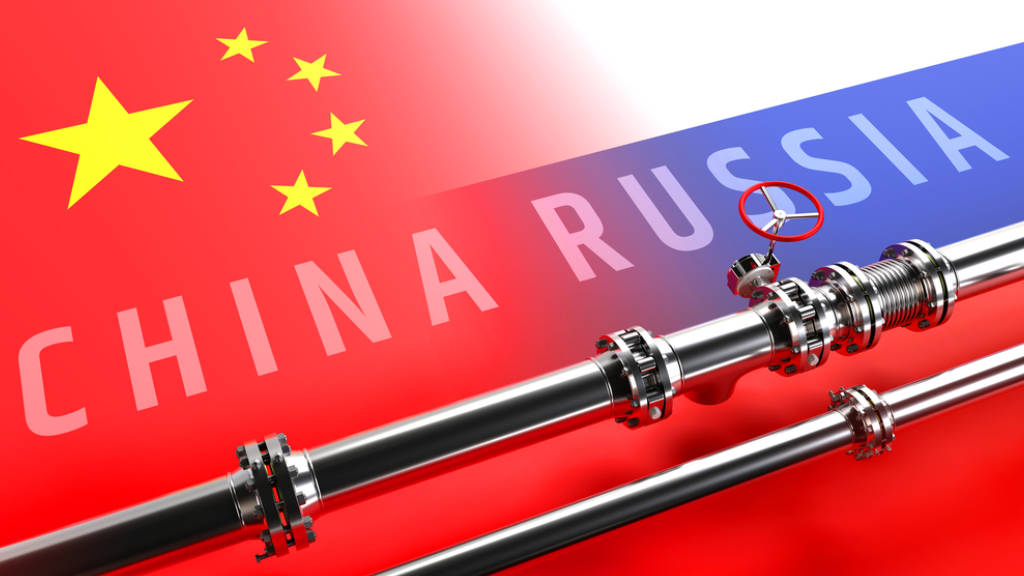China and Russia have stated their aims to maintain “industrial supply chain stability” after Chinese foreign minister Wang Yi and his Russian counterpart Sergei Lavrov reinforced calls for their two countries to work more closely together against “hegemonism”, in a statement released by the Chinese foreign ministry.
Russia has been intensely sanctioned by Western powers while Chinese products have been subjected to high import tariffs rates. Wang summed up the Russian-Chinese position by stating that “China and Russia will be more active in pursuing the convergence of their interests, and work together to maintain international industrial supply chain stability.”
He mentioned that this would be achieved by better coordination of trade and development with the BRICS nations and the Shanghai Cooperation Organisation (SCO). None of the members of either of these entities have placed sanctions on either China or Russia. In addition to Russia and China, they include Brazil, Egypt, Ethiopia, India, Iran, Saudi Arabia, South Africa, and the UAE in the BRICS, and Kazakhstan, Kyrgyzstan, Pakistan, Tajikistan and Uzbekistan in the SCO. In addition, several others countries are poised to join the BRICS grouping while the SCO has also admitted Belarus and Mongolia as dialogue partners and Armenia, Azerbaijan, Bahrain, Cambodia, Kuwait, Maldives, Myanmar, Nepal, Qatar, Sri Lanka, and Turkiye as dialogue partners. There has been talks of merging BRICS and the SCO. The main BRICS grouping already has a higher GDP than the West’s G7, with 32% of the global total as against 30% as of 2023. The BRICS group percentage is also expected to increase. Wang’s comments suggests additional infrastructure will be put in place, including free trade agreements, to further develop non-Western supply chain security.
Meanwhile, the statement of mutual support and condemnation of the United States came as Janet Yellen, the US Treasury Secretary was flying back to Washington after a six-day trip to China during which she had warned her Beijing counterparts on Saturday of “significant consequences” for Chinese companies that provided “material support for Russia’s war against Ukraine, including support to the Russian defence industrial base”.
Lavrov’s visit to Beijing illustrated the growing partnership between China and Russia. In an additional meeting with Chinese President Xi Jinping, Lavrov said Russia was “delighted” by China’s success under his leadership and made veiled criticisms of countries “that are trying to contain China’s development, just as they are trying to contain Russia’s.”
Chinese state television quoted Xi as saying Beijing and Moscow had embarked on a path of “harmonious coexistence” and “win-win co-operation”. While the West has imposed sanctions and trade embargoes against Russia, Moscow has sustained its economy and defence industry thanks to expanded trade with China and increasing imports from Asia in particular.
China buys about 40% of Russia’s crude oil and most of its coal. It is one of the top three buyers of Russian oil products, pipeline gas and LNG.
Lavrov said that relations between Russia and China had reached an “unprecedented level” and that President Vladimir Putin’s re-election in March offered “additional guarantees” for the strengthening of ties. Wang replied that China would “continue to support Russia’s development and revitalisation under the leadership of President Putin.”
Another aspect of Lavrov’s visit was in preparation for an expected trip by Putin to meet Xi in China later this year. The Russian foreign minister said the two leaders would also meet at summits of the Shanghai Cooperation Organisation in Kazakhstan in June and at the BRICS annual forum in Russia in October.
Russia-China relations are extensively featured in our 2024 Russia’s Pivot to Asia Guide. That can be downloaded for free in English here and Russian here.

 Русский
Русский













